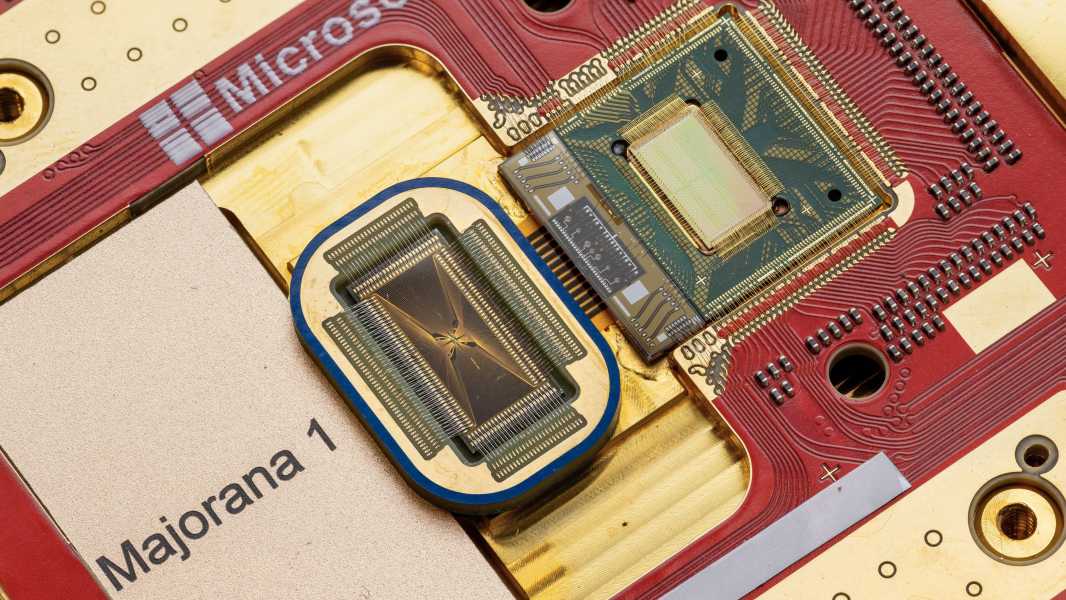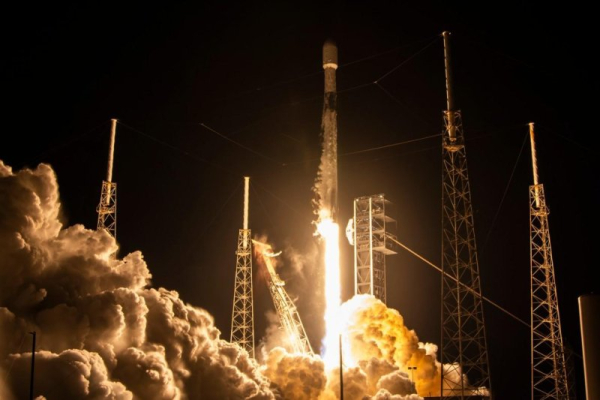
The new quantum computing chip, Majorana 1, includes eight topological qubits that connect to a new state of matter to perform calculations. (Image credit: John Brecher for Microsoft)
Researchers at Microsoft have developed a new quantum computing chip using a unique type of material that can transition into a new state of matter. The advance could allow scientists to create a universal chip with millions of reliable qubits much sooner than expected — perhaps in just a few years rather than decades.
The new quantum processing unit (QPU), called Majorana 1, is a prototype eight-qubit chip made from the world's first such material, a topological conductor, or topoconductor. It can achieve a “topological” state of matter and interact with the laws of quantum mechanics under certain conditions to process the ones and zeros of computational data in a quantum computer.
The new type of qubit, called a “topological qubit,” is stable, smaller, uses less power, and is more scalable than a qubit made of a superconducting metal — the most common type of qubit used in quantum computers developed by companies like Google, IBM, and Microsoft itself.
“We took a step back and asked, ‘What are the properties that a transistor needs to have for the quantum era?’” said Chetan Nayak, a Microsoft technical fellow and professor of physics at the University of California, Santa Barbara. “That’s what we came up with — this unique combination, these qualities, these important details in our new material stack that enabled us to design a new type of qubit and, ultimately, our entire architecture.”
The development of this quantum processor was only possible after researchers first used this architecture to precisely observe and control a mysterious subatomic particle with special properties known as the Majorana fermion or Majorana zero mode (MZM), theoretically proposed by mathematician Ettore Majorana in 1937.

Majorana's theory suggested that a particle could be its own antiparticle and that they could coexist rather than just annihilate each other.
Scientists have previously attempted to create Majorana fermions for use in a new type of quantum computing. Research into the Majorana fermion and its potential use in quantum computers has been ongoing for many years, including reports of the particle's discovery in 2012 and in April 2024. Researchers also published a paper in June 2023 reporting the discovery of a topological state of matter.
Majorana's theory suggests that a particle can be its own antiparticle. This implies that it is theoretically possible for two such particles to combine and either annihilate each other, releasing a significant amount of energy (
Sourse: www.livescience.com





